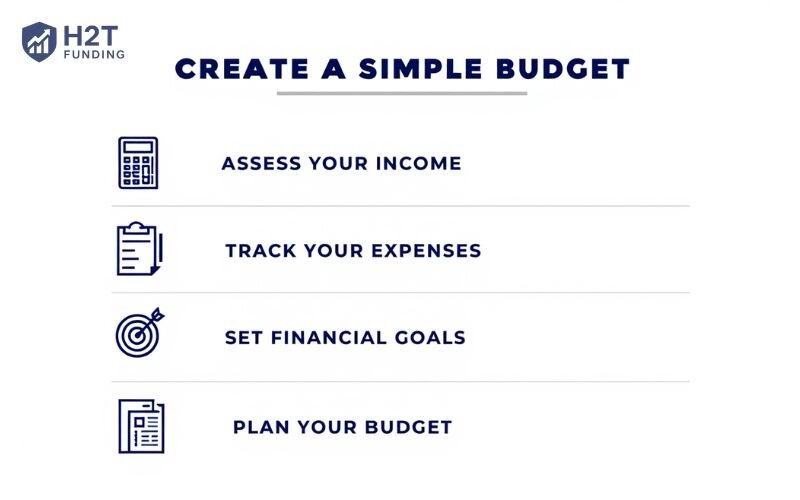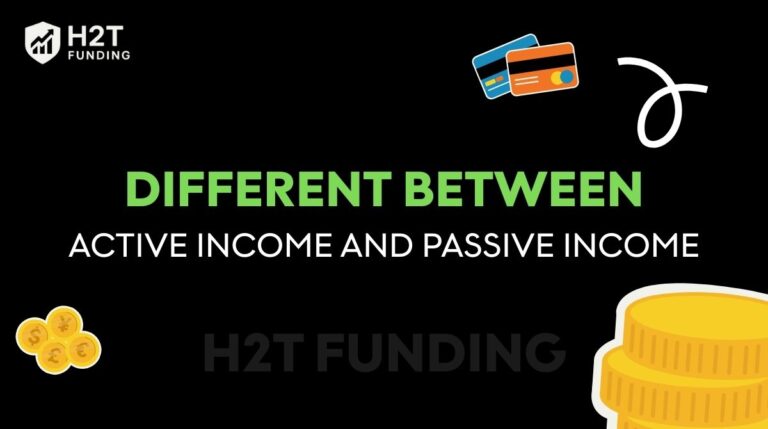A budget is simply a plan for your money, but thinking of it that way misses the point. It’s not a rigid set of rules designed to restrict you; it’s your personal roadmap to spending with purpose.
It’s the tool that helps you stop reacting to your finances and start directing them toward what truly matters, whether that’s getting out of debt, saving for a home, or building long-term security.
So, what can a budget help you do in the real world? I’ll break down 12 practical benefits that show how planning your money can turn financial chaos into clarity and control.
1. What are the benefits of budgeting?
A budget is not just about cutting costs; it helps you shift from reacting to your finances to actively directing them toward what truly matters. So, what can a budget help you do? The answer lies in the real impact it makes.
Let’s break down 12 core advantages that prove how budgeting can be the smartest move for your financial future.
1.1. Gain total control over your money
Have you ever reached the end of the month and wondered where all your money went? That uncertainty is a sign you’re spending without a clear plan, and it’s more common than you think.
Budgeting solves this by giving you a real-time view of your financial life. When you track your income and categorize every expense, you gain full visibility over where your money flows.

This control is more than awareness; it’s empowerment. It allows you to spot patterns, correct poor habits, and make decisions based on facts, not guesswork. It’s the foundation for everything else a budget helps you achieve.
1.2. Prevent overspending and impulse buys
Without a budget, it’s easy to overspend without realizing it, especially when temptation is just one click or swipe away. Impulse purchases may seem harmless, but they quietly drain your financial progress over time.

A budget works like a guardrail. By assigning specific spending limits to categories like groceries, dining out, or entertainment, you create boundaries that guide your choices.
When you see there’s only $50 left in your “shopping” category, it prompts a pause before making that spontaneous purchase. This structure doesn’t restrict you; it helps you spend smarter and stay in control of your financial priorities.
More helpful tips:
1.3. Systematically get out of debt
Debt can feel overwhelming, especially when payments eat into your income each month with no end in sight. By tracking your expenses and identifying areas to cut back (like subscriptions or takeout), you free up money that can be redirected toward your debt.

A budget helps you prioritize high-interest balances first, whether it’s credit cards, personal loans, or buy-now-pay-later obligations. This turns debt repayment from a vague intention into a step-by-step plan. And as balances shrink, your momentum and confidence grow.
1.4. Build a crucial emergency fund
Unexpected expenses don’t wait for the “right time.” A flat tire, a medical bill, or sudden job loss can derail your finances overnight, especially if you don’t have a safety net.
That’s why experienced financial planners consistently recommend setting aside 3–6 months’ worth of living expenses in an emergency fund. A budget makes this possible by turning saving into a non-negotiable monthly habit, just like rent or utilities.
1.5. Achieve your short-term and long-term goals
Financial goals often remain out of reach, not because they’re unrealistic, but because there’s no structured plan to achieve them. Budgeting changes that by making goal-setting part of your monthly routine.
This isn’t just theory. According to a 2023 report by Fidelity Investments, 83% of individuals who set clear financial goals as part of their budget were more likely to make progress toward major milestones like buying a home or funding education.

With a budget, you can break down large goals into manageable monthly contributions. For example, saving $200 a month for two years gives you nearly $5,000, enough for a modest vacation or the beginning of a home down payment.
Further reading: Leverage trading for beginners
1.6. Reduce financial stress and improve mental well-being
It’s no secret that money is a top source of stress. That low-grade anxiety about upcoming bills or an unexpected expense can be exhausting. A budget is a powerful tool to fight back against that feeling.
It’s not just about numbers; it’s about replacing uncertainty with a concrete plan. When you know exactly where your money is going, the constant “what ifs” that fuel so much worry begin to fade. That sense of control brings peace of mind that is genuinely one of the most powerful and underrated benefits of budgeting.
1.7. Improve your communication about money
Money is a notorious source of friction in relationships. In fact, a 2022 study from Ramsey Solutions found that among couples who argue, 41% cite money as their top source of conflict.

Creating a shared budget is a way to get on the same team. It moves the conversation from emotional reactions to objective facts: here’s what’s coming in, here’s where it’s going, and here’s what we agree is important. It encourages you to set goals together, whether you’re saving for a house or just planning next year’s family trip.
1.8. Identify and eliminate wasteful spending
Most people don’t realize how much money slips through the cracks until they start tracking it. Small, frequent purchases, like takeout meals, unused subscriptions, or random online buys, can quietly drain hundreds of dollars each month.
That’s where budgeting comes in. It shines a light on where your money actually goes, helping you distinguish between necessary expenses and wasteful habits.
For instance, after tracking her expenses for a month, one 31-year-old professional was shocked to find she was spending over $150 monthly on convenience coffee and streaming services she rarely used.
By budgeting, she canceled what she didn’t need and set a small limit on treats. This simple shift redirected nearly $1,800 a year into her emergency fund.
Check out similar articles: How to track net worth: A step-by-step guide like a pro
1.9. Increase your savings and investment rate
Once you’ve identified and eliminated wasteful spending, the next step is putting that freed-up money to work. A well-structured budget makes it easier to allocate more toward savings and investments, key drivers of long-term wealth.

Without a plan, extra cash often gets spent without intention. But when you budget, you can choose to funnel that surplus into high-yield savings accounts, retirement plans, or investment portfolios.
1.10. Prepare for major life events
Major life transitions, like getting married, starting a family, changing careers, or buying a home, often come with significant financial demands. Without preparation, these events can lead to stress, debt, or missed opportunities.
Budgeting allows you to anticipate these moments and build a financial cushion well in advance. Instead of scrambling when the time comes, you’ve already factored those expenses into your long-term plan.
1.11. Enhance your financial discipline and habits
Budgeting is more than just tracking numbers; it’s a practice that builds long-term financial discipline. Like going to the gym, consistency matters more than perfection.
When you follow a budget month after month, you train yourself to spend intentionally, delay unnecessary gratification, and prioritize long-term value over short-term impulse.
I’ve seen this firsthand so many times. Consider Daniel, a 28-year-old freelancer in Chicago I once advised. His income was unpredictable, and his first attempt at a rigid budget felt restrictive and failed within two weeks. But he didn’t give up.
He adjusted his plan to be more flexible, focusing on percentages rather than fixed amounts. By reviewing it weekly, he developed habits like meal planning and automating savings, which helped him navigate the slow months without going into debt and steadily grow a financial buffer.
1.12. Make confident and informed financial decisions
Big financial decisions, like buying a car, changing jobs, or moving to a new city, can feel overwhelming without a clear picture of your finances. That’s where a budget becomes essential.

With accurate data on your income, expenses, and savings, you can assess opportunities based on facts, not guesswork. You know what you can afford, what trade-offs are required, and how your decision will affect other goals.
Discover more on this topic: How can a budget help you reach your financial goals? 7 proven benefits
2. How to create a simple budget in 4 actionable steps
Getting started with budgeting doesn’t have to be complicated. You don’t need spreadsheets full of formulas or a degree in finance. All it takes is a simple structure and a bit of consistency.

2.1. Step 1: Know your total monthly income
Your budget starts with one simple number: how much money you bring in each month. This is your net income, what you actually take home after taxes and deductions.
Be sure to include:
- Salary or hourly wages
- Freelance or side gig income
- Government benefits (e.g., Social Security, SNAP, child tax credits)
- Alimony or child support
- Passive income (e.g,. rental property, dividends)
If your income varies, calculate an average from the past 3–6 months. This number is the foundation of your budget—it defines your spending limits and sets the stage for every financial decision.
2.2. Step 2: Track all your expenses
To manage your money effectively, you first need to know where it’s going. That means tracking every expense, for at least one full month to get a clear, honest picture of your spending habits.
You can use:
- Budgeting apps like YNAB or Monarch
- A spreadsheet (Google Sheets or Excel)
- A physical notebook for daily tracking
Sort your expenses into two main categories:
- Fixed costs: rent, loan payments, insurance
- Variable costs: groceries, dining out, entertainment, shopping
Don’t forget irregular or annual expenses like subscriptions, car maintenance, or holiday gifts. Once everything is tracked, you’ll start to see patterns and opportunities to save.
2.3. Step 3: Set your financial goals
A budget without purpose rarely sticks. That’s why defining your financial goals, your “why,” is essential to staying motivated and focused.
Ask yourself:
- What do I want to achieve in the next 6 months?
- What bigger dreams do I want to reach in 5–10 years?
Examples of short-term goals:
- Paying off a credit card
- Saving $1,000 for a vacation
- Creating a $500 emergency buffer
Long-term goals might include:
- A home down payment
- Retirement planning
- Starting a business
Write down 1–3 goals and assign each a timeline. Your budget will become the tool to make those goals real, month by month.
2.4. Step 4: Design your budget plan and review it regularly
Now it’s time to bring it all together. Subtract your total monthly expenses from your income.
- If you have money left over, decide how to allocate the surplus: debt repayment, savings, or investments.
- If you’re overspending, revisit your variable costs and cut where possible.
One simple approach is the 50/30/20 rule:
- 50% Needs: rent, groceries, insurance
- 30% Wants: dining out, hobbies, subscriptions
- 20% Savings & debt: emergency fund, loan payments, investments
Life changes, so should your budget. Review it monthly to adjust for income shifts, new goals, or unexpected costs. Consistency, not perfection, is what builds financial stability.
For further reading, don’t miss:
3. Frequently asked questions (FAQs)
Budgeting has helped people pay off credit card debt, build emergency savings, and save for home down payments. By tracking spending and planning ahead, they’ve gained control and made real progress toward their goals, without needing to earn more.
It’s helped people break the paycheck-to-paycheck cycle, clear thousands in debt, and build emergency funds. With a plan in place, they’ve made steady progress, often for the first time.
It keeps your spending intentional and aligned with your priorities. Instead of saving what’s left, you plan to save first, making faster progress toward your financial goals.
Because income alone doesn’t build wealth, how you manage it does. A budget helps you control spending, stay focused on your goals, and make smart financial choices consistently.
4. The bottom line about what a budget can help you do
Ultimately, a budget isn’t a restriction; it’s your roadmap to freedom. It helps you stop drifting and start directing your money toward the life you actually want.
So, what can a budget help you do? The real question isn’t what a budget can do, but what you will do with it. From my own experience, I can tell you that you don’t need to be perfect; you just need to start. Your financial future isn’t going to build itself. Take that first step today.
For more insights on managing your money with purpose, explore additional guides in H2T Funding’s Budgeting Strategies section. You’ll find practical tips, real-life examples, and step-by-step methods to strengthen every part of your financial plan.





